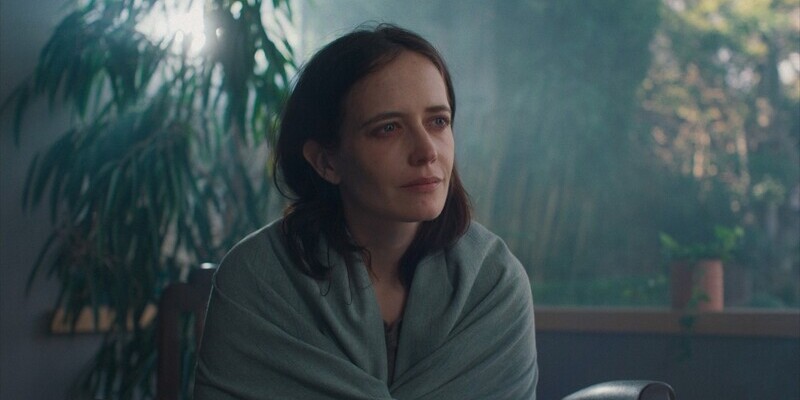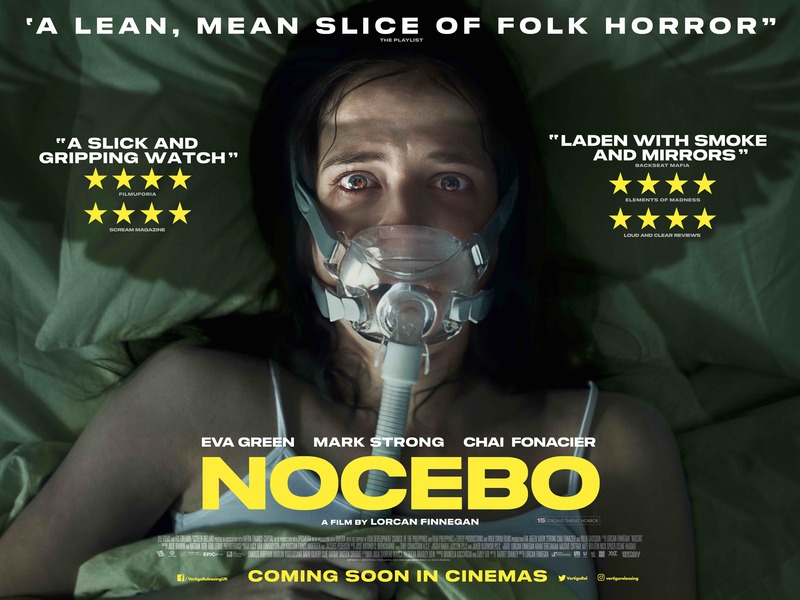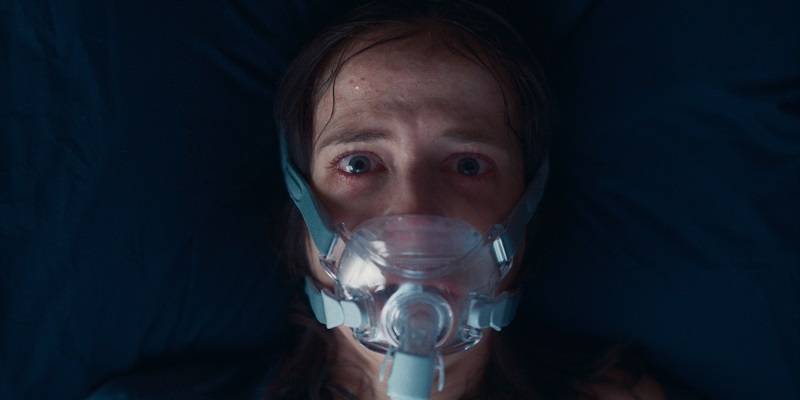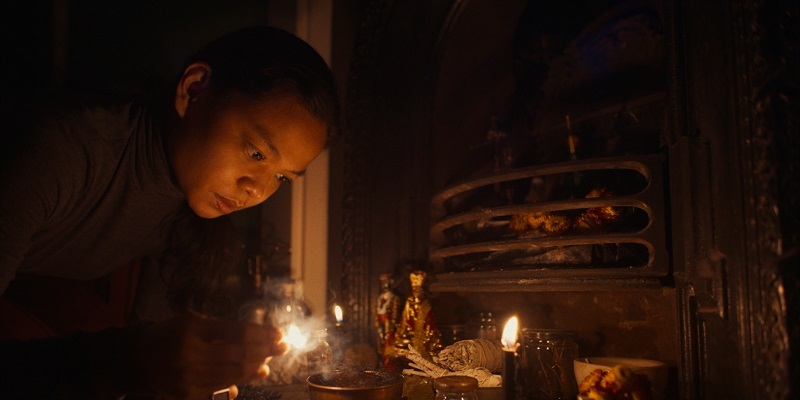
A fashion designer succumbs to a mysterious ailment that only her
housekeeper has the power to cure.
Review by
Eric Hillis
Directed by: Lorcan Finnegan
Starring: Eva Green, Chai Fonacier, Mark Strong

Director Lorcan Finnegan's Nocebo is something of a
rarity among modern mainstream horror movies. It's a heavily politicised
horror movie that organically intertwines its politics with its horror.
It's preachy, very much so, but not verbally in the manner of so many of
its contemporaries. Its sermonising is done through its storytelling
rather than through any clunky monologues, chiefly because its villain
believes she's its heroine, and hopes you will too.
The casting of Eva Green as protagonist/antagonist Christine proves
inspired. Green is one of the most likeable and charming actresses working
today, so Finnegan instantly sets himself a challenge – can he make an
audience find Eva Green unattractive, repulsive even?

Christine is a successful London based designer of fashion for kids.
During a fashion show she receives a phone call that greatly upsets her.
We're not treated to the full details, but Christine's muttering of
"pulling out bodies…" suggests something terrible has occurred at one of
the Asian sweatshops where her garments are constructed. Immediately after
the phone call, Christine is approached by a mangy dog that looks like
Dicky the Alsatian and his blind owner from Lucio Fulci's
The Beyond have morphed into one nightmarish creature. The
mutt is covered in ticks, which he shakes all over an appalled Christine,
who immediately wakes up from what was apparently a day-nightmare. Not so,
as one of the ticks is seen burrowing into the back of her neck.
In the weeks following the incident Christine turns into something of an
emotional and physical wreck. She suffers from intense shakes, relies upon
an oxygen mask to sleep at night and appears to intermittently lose her
memory. The latter explains why she accepts the word of Diana (Chai Fonacier), a young Filipina who arrives at her door claiming Christine hired her
to be a live-in housekeeper.

Diana's arrival will remind horror fans of Mrs Baylock, the creepy Mary
Poppins figure played by Billie Whitelaw in Richard Donner's
The Omen, who similarly arrives unannounced and begins working her devilry. It's
but one of many nods to Donner's film peppered throughout
Nocebo, but in this case we're ultimately rooting for the Devil. As we
immediately expect from her unsettling presence (there's something
indefinably disturbing in how Diana constantly repeats Christine's name),
Diana doesn't have Christine's best interests at heart. When Diana
temporarily cures Christine's shakes, she asks if she knows any other
remedies. "I can help you Christine," she replies, "but only if you trust
me." Thus, Christine allows herself to become the subject of Diana's
witchcraft, much to the chagrin of Christine's husband Felix (Mark Strong). Meanwhile, Diana is also slowly ingratiating herself with the couple's
young daughter Roberta (Billie Gadsdon).
Finnegan and screenwriter Garret Shanley tease out Diana's
backstory with flashbacks of her life in the Philippines, but the viewer
will have put two and two together long before they unveil the number
four. As the film progresses, our sympathies transfer from Christine (if
they were ever aligned with her in the first place) to Diana. What's
interesting about Christine is how blind she is to the suffering she's
caused. Felix gives his wife the benefit of the doubt, suggesting that her
ailments are the result of guilt. Yet Christine's reaction to her
"recovery" in the hands of Diana suggest that's not the case, that her
ailment isn't mental but physical – it's a dose of the flu and Diana has
provided a warm bowl of chicken soup. Christine doesn't feel guilt because
let's face it, none of us really do when it comes to how much suffering is
caused by the lifestyle we've grown accustomed to in the Western world. We
treat the labourers of Asia, Africa and Latin America with the same
inhuman disregard 17th century consumers had for the slaves toiling in the
Americas to keep them in cotton and coffee beans.

Finnegan puts us in the uncomfortable position of feeling contemptuous
towards a villain whose actions we're entirely complicit with. He also
takes a wry jab at capitalism's current hypocritical obsession with
"diversity" and "inclusion," with Christine's employer (Cathy Belton) suggesting a photoshoot featuring "urban" and "South East Asian"
children (North American and European brands and corporations love to fill
their marketing campaigns with models who share the same ethnicities as
the people they're exploiting in the rest of the world).
Nocebo subverts the old horror cliché of the troubled female
protagonist and the cold-hearted, disbelieving husband. Felix is intensely
unlikeable, particularly in his condescending attitude towards Diana, but
unlike the hubbies of most women-in-peril horrors, he's the one who has
things sussed. It's made clear that his marriage to Christine has outlived
its expiration date, but he still wants what's best for her. In this case
however this makes him complicit with the film's true evil. Felix never
reveals this as such, but Finnegan's direction and Strong's performance
make it clear that he knows what Diana is really up to and why his wife
might be targeted by her. Even when confronting Diana he can't bring
himself to say it out loud, because that would reveal his complicity. In
Felix's uncomfortable silence we see a reflection of our own attitude
towards our role in the exploitation of the Global South – if we don’t
speak about it, maybe we won’t have to confront it.

Nocebo is on Prime Video UK/ROI
now.
